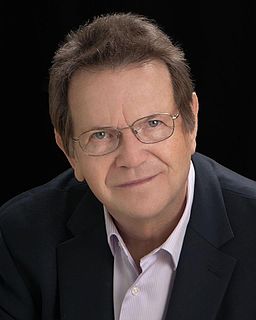A Quote by Ann Widdecombe
Stand-up comics tend to make two assumptions: that Christians have no sense of humour and that all their audiences are unbelievers.
Quote Topics
Related Quotes
We have a tendency to make assumptions about everything! The problem with making assumptions is that we believe they are truth. We could swear they are real. We make assumptions about what others are doing or thinking-we take it personally-then we blame them and react by sending emotional poison in our word. That is why whenever we make assumptions, we're asking for problems. We make assumptions, we misunderstand, we take it personally, and we end up creating a whole big drama for nothing.
You hear people talking about a Scottish sense of humour, or a Glaswegian sense of humour, all sorts of countries and cities think that they've got this thing that they're funny. I read about the Liverpudlian sense of humour and I was like, 'Aye? What's that then?' You get that and you especially hear about a dark Glaswegian sense of humour.
A man of knowing attains to a sense of humour. Let this always be remembered. If you see someone who has no sense of humour, know well that that man has not known at all. If you come across a serious man, then you can be certain that he is a pretender. Knowing brings sincerity but all seriousness disappears. Knowing brings a playfulness; knowing brings a sense of humour. The sense of humour is a must.
The lovely thing about writing comics for so many years is that comics is a medium that is mistaken for a genre. It's not that there are not genres within comics, but because comics tend to be regarded as a genre in itself, content becomes secondary; as long as I was doing a comic, people would pick it up.
If others tell us something we make assumptions, and if they don't tell us something we make assumptions to fulfill our need to know and to replace the need to communicate. Even if we hear something and we don't understand we make assumptions about what it means and then believe the assumptions. We make all sorts of assumptions because we don't have the courage to ask questions.
I always get a little bit pissed off when stand-up comedy is not recognised as being as good a craft as being an actor. We give Oscars to people and it's like, 'Aw, this person is the greatest person on earth', but being an actor is pretty easy in comparison to stand-up comedy. It's no surprise that several stand-up comics have gone on to become great actors. I don't know any great actors that have gone on to become great stand-up comics.
The missionary question is not, 'Where are there unbelievers?' and then send a missionary there. There are unbelievers everywhere! The missionary question is, 'Where are there people's who don't have any Christians in them or don't have a church strong enough to do the neighbor evangelism that we can do if we just want to do it?' That's the missionary question.

































